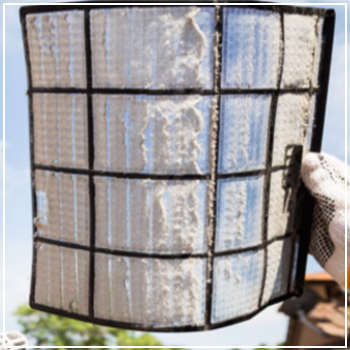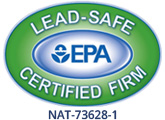How Do HVAC Systems Affect Spring Allergies?
 When spring arrives, roughly 50 million Americans experience seasonal allergies. Pollen and other particles result in sneezing, itchy eyes and congestion while outside but these contaminants may also follow you inside, where HVAC systems can exacerbate their effects.
When spring arrives, roughly 50 million Americans experience seasonal allergies. Pollen and other particles result in sneezing, itchy eyes and congestion while outside but these contaminants may also follow you inside, where HVAC systems can exacerbate their effects.
Heating and cooling systems can accumulate and circulate allergens like fabric and carpet fiber, pet dander, dust mites, compounds from smoking and wood burning, and gases from appliances. Condensation can also attract and distribute mold and mildew particles.
If you have spring allergies, the following factors may worsen your symptoms.
Not Cleaning the Filters
If you have not serviced your air conditioner since last summer, its filters have likely gathered a bunch of dust. Once the system is turned on again, these accumulated particles will circulate through your home. The same goes for any forced air filter.
In all cases, you should be cleaning or replacing the filter every three months. Skipping this crucial step affects the indoor air quality of your home, causing dirt, pollen and dust to spread.
In some cases, you may consider installing a HEPA filter, known to block smaller particles. An HVAC professional can adjust the indoor airflow and determine which MERV rating would be best for your home. Generally, anything higher than “10” is ideal for allergy sufferers.
In addition, your HVAC system can be supplemented with an air purifier or ionizer. As part of your HVAC system, air purifiers use an electrically charged filter to remove allergens and other airborne particles to keep them from spreading through your home.
Get Your Ducts Clean
Beyond the filters, your system’s ducts may be harboring dust, pollen, pet dander and mold, where it gathers over time. Although you can do your part by regularly cleaning the registers and air return vents, as well as dusting the surfaces in your home, a professional may be needed to assess and clean out the ducts. Open seams could also be letting in dust or particles from the outdoors.
Moisture Levels
The presence of mold is often caused by moisture buildup in your HVAC system. For allergy sufferers, dry air can aggravate your symptoms. Come springtime, you’ll want the right balance between moisture and humidity in your home.
Several factors affect the amount of moisture in your HVAC system, including clogged air conditioner drains or vents attracting condensation. A humidifier can alleviate allergy symptoms, but can also contribute to mold problems. The sweet spot for spring is below 55 percent humidity.
Contact MJ Fahy & Sons for a system inspection and cleaning to address allergens early in the spring season. Make an appointment today.




